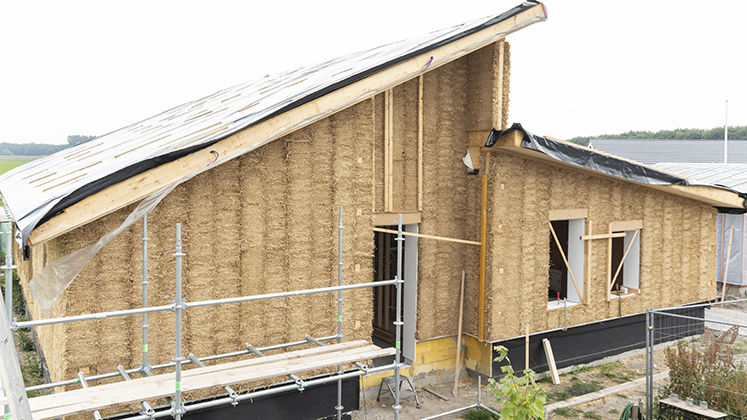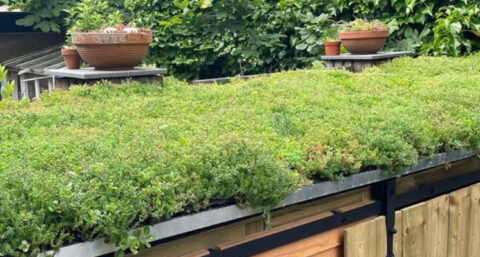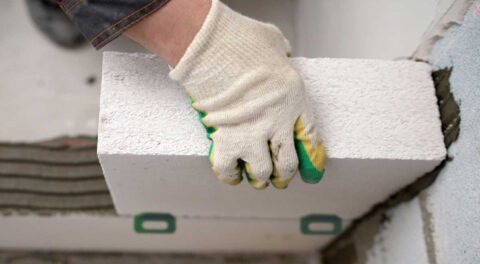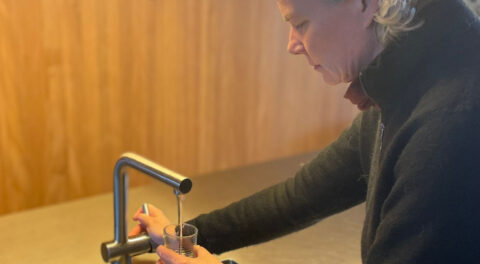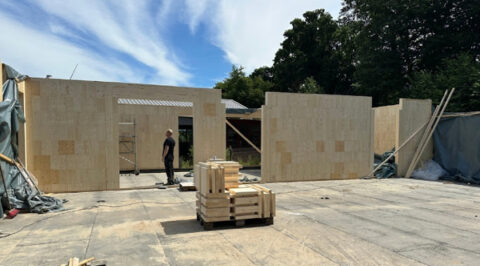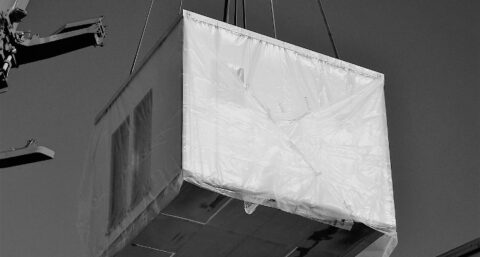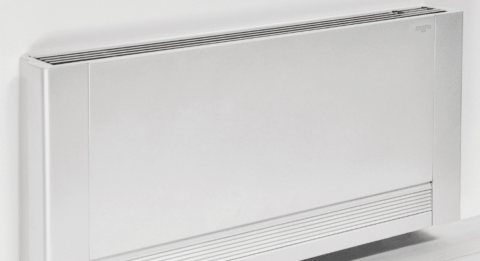Traditional materials for new construction and renovation, usually have a considerable climate impact in their extraction, production and transportation. There is therefore increasing demand for biobased (re)building materials. These are materials made from plants that are grown, harvested, used and reused in an ecologically responsible way. The government is increasingly encouraging building or renovating with natural materials. There is now a good guide for those who want to get started with this.
Last week the event 'Biobased sustainability of existing buildings' took place at Hogeschool Utrecht. Building Balance and OnderhoudNL took about four hundred visitors, a broad reflection of stakeholders in the entire renovation and maintenance chain, through the best biobased alternatives for insulation and other maintenance interventions. The first copy of the manual 'Biobased sustainability of existing buildings' was also handed over to the Director General of Housing and Construction of the Ministry of the Interior, Chris Kuijpers.
Marjet Rutten, one of the carters of this project, sees plenty of opportunities for the maintenance industry: "Biobased materials have many advantages. Besides health and a new earnings model for the farmer, they also store CO2 during growth. Thus, the construction industry becomes a CO2 storage bank."
'Already a lot possible'
Much is already possible in the field of bio-based materials. To gain insight into the current supply and stimulate the use, OnderhoudNL as representative of the maintenance companies, together with Building Balance as booster of bio-based construction, started working with a group of frontrunners. The result was that on June 6, both clients and contractors and suppliers could be shown what is already possible in the field of the use of bio-based materials in existing construction. Henk den Boer, chairman of OnderhoudNL, is proud of the launch of the manual: "The aim is to encourage members and their clients to use promising bio-based products (even more) in their renovation projects. And to show that we can get started today. The presence of Chris Kuijpers, the director general of the Ministry of the Interior and Kingdom Relations and a huge subsidizer of sustainability, underlines the social urgency of this bio-based sustainability drive."
Demonstrations and best practices
On the HU plaza, progressive suppliers gave demonstrations of biobased products. For example, on the use of chopped straw as blow-in insulation, or the use of hemp for insulation blankets and sheet material. In addition, maintenance companies this afternoon shared best practices on the best biobased alternatives for insulation and other maintenance interventions.
Learned young is done old
The location of Hogeschool Utrecht was not chosen for nothing. The college is committed to circularly built living environments and developing knowledge and skills in this area. By introducing novice professionals to biobased sustainability already during their studies, they will automatically apply it in their later professional practice. During the event, HU student Ruben Meijer talked about how biobased building and renovation is popular among current students. Mieke Oostra, lecturer in New Energy in the City, explained how biobased sustainability is integrated into education.
Handbook
Everything about the use of biobased materials in existing construction, from benefits, risks, types to best practices, has been compiled by OnderhoudNL and Building Balance into a manual. During the event, a first copy of the manual 'Making existing construction biobased sustainable' was handed over to the Director General of Housing and Construction of the Ministry of the Interior, Chris Kuijpers. All visitors (and all people on the reserve list who unfortunately could not attend the event in person due to the great enthusiasm) have now received the manual online. Henk den Boer on the manual: "Together we are 'ambassadors' of biobased. So 'biobased' we are, I heard today. With the publication of the manual, OnderhoudNL and Building Balance are putting the maintenance industry even more firmly on the map to continue working on a liveable future."
Many things are possible
Conclusion of this afternoon: clients, contractors, corporations, municipalities, policy makers, consultants, suppliers and students can start working with biobased materials. To ensure that the enthusiasm of both clients and contractors does not remain just good intentions, this initiative will be followed up. In the fall, OnderhoudNL and Building Balance will develop a commitment statement in which individual companies and clients can officially record what percentage of the materials used will be bio-based.

